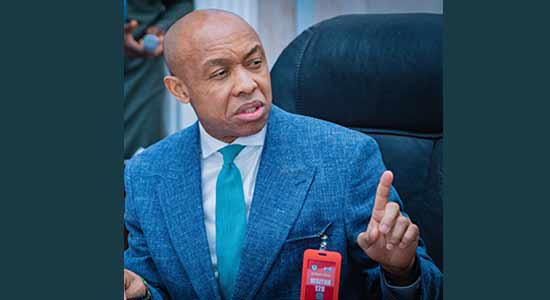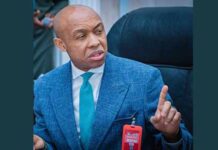the BoB also hosts the Legal Practitioners Disciplinary Committee (LPDC), the statutory body charged with enforcing consequences for ethical lapses in Nigeria’s legal profession. When it encounters cases affecting senior lawyers, however, the BoB seems to lapse into a habit of no consequence
The ritual of the “Call to Bar” is the formal ceremony for the admission of new entrants into Nigeria’s legal profession. The responsibility for administering it resides in the Body of Benchers (BoB), a statutory entity described by law as “a body of legal practitioners of the highest distinction in the legal profession in Nigeria.”
The solemnity of the Call to Bar is guaranteed by the presence of members of the BoB who administer the ceremony resplendent in ceremonial gowns supposed to testify to their high distinction in matters legal.
The criteria for the determination of this threshold requirement of “highest distinction” antecedent to membership of the BoB are, however, opaque.
The ceremony itself is usually an occasion for members of the Body of Benchers to remind the new entrants of the obligations that come with their new status. It should go without saying that the members of the BoB should themselves embody those values through their own records and example. It should be no surprise that, in Nigeria, this is not usually be the case.
There are three categories of membership of the BoB. Membership can exceptionally be honorific, a mostly vacuous conferment reserved for political or diplomatic occasions. Separately, there is ordinary membership attained through high office in public service as judges or Attorneys-General or as leaders or nominees of the Nigerian Bar Association (NBA). Such membership these days also extends to the chairpersons of the judiciary committees of the two chambers of the National Assembly as well as to principal officers of the National Assembly who are lawyers. Members who are conscientious in attending meetings and official dinners of the BoB over a period of four years may be conferred with the status of Life Benchers. That is the stuff of high distinction.
The most recent Call to Bar ceremony occurred in Abuja, the Federal Capital Territory, over three days from 23 to 25 September 2025. Away from the cameras, on 24 September, something happened which speaks to the existential – even terminal – crisis of values, leadership and responsibility that currently afflicts the governance of Nigeria’s legal profession.
At the insistence of certain members of the BoB, one of the members elevated to the status of Life Bencher only in January 2025, Chief Mike Ozekhome, was prevailed upon to quietly withdraw from participating in the process of admitting the new entrants into the profession.
The reason given by the objecting members of the BoB was a judgment delivered a mere six weeks earlier on 11 September 2025 in his ultimately unsuccessful application for registration of title in real estate before a property registration tribunal in England, in which the presiding judge shredded Ozekhome’s testimony as “an invention and contrivance.”
According to Gideon Christian, a law professor at the University of Calgary in Alberta, Canada, “this case illustrates how corruption operates [in Nigeria]: politicians hide wealth abroad under false identities, while lawyers – sworn to uphold the law – serve as enablers of fraud.”
The most significant thing about the enforced withdrawal of Chief Ozekhome from the Call to Bar ceremonies last month is not that it occurred. It is that the BoB went out of its way to ensure that it was a well-guarded secret.
It is relevant here that in addition to its role in admitting new entrants into the vocation of the law in Nigeria, the BoB also hosts the Legal Practitioners Disciplinary Committee (LPDC), the statutory body charged with enforcing consequences for ethical lapses in Nigeria’s legal profession. When it encounters cases affecting senior lawyers, however, the BoB seems to lapse into a habit of no consequence.
Before Mr. Aondoakaa, there was the case of Kunle Kalejaiye, SAN, involved in corrupting a judge, Thomas Naron, in an election petition. In 2013, Thomas Naron lost his job but the Supreme Court decided in 2019 on a disreputable technicality that Mr. Kalejaiye could keep his
On 10 December 2021, the Supreme Court of Nigeria determined that Michael Aondoakaa, a Senior Advocate of Nigeria, (SAN), and former Attorney-General of the Federation (HAGF), “had, by his conduct, undermined and subverted the administration of justice and the independence, authority and integrity of the judiciary” and “ought not to be entrusted with any other public office at all.” In effect, the Supreme Court barred Mr. Aondoakaa from public office again in Nigeria. The antecedents of this decision were staggering.
Ahead of Nigeria’s 2007 general elections, political parties organized processes in 2006 to select their candidates for various offices to be contested across the country. In Uyo Federal Constituency of Akwa Ibom State, the then ruling party, the Peoples’ Democratic Party, PDP, in primaries conducted in December 2006, selected Bassey Obot as their candidate to fly their flag in the contest for a seat in the House of Representatives.
In a country where the most consequential things are accomplished by the unknown, some unknown persons contrived to remove Mr. Obot’s name from the records of the Independent National Electoral Commission, INEC, substituting him with one Mr. Bassey Etim as the PDP candidate.
In December 2007, the Court of Appeal ordered the President of the Court of Appeal to constitute a new tribunal in Uyo to hear Mr. Obot’s case. Mr. Aondoakaa, then newly installed as the HAGF, wrote to the President of the Court of Appeal (PCA) claiming powers to instruct him not to comply with the order of the Court of Appeal. He cited as his reason the fact that he was considering a petition from Mr. Etim.
Unable to contrive a sensible reason to disobey the order of a court over which he presided, however, the PCA disregarded Mr. Aondoakaa’s importuning and obeyed the Court of Appeal.
In April 2008, the Tribunal decided in favour of Mr. Obot, ordering INEC to certify him as the winner, so he could be sworn in as such.
The Court of Appeal, the final arbiter then in disputes over elections to parliament, affirmed the judgment of the tribunal.
In separate letters thereafter to the INEC Chairman and to the Speaker of the House of Representatives, Mr. Aondoakaa again required them to disobey and disregard the final orders of the Court of Appeal. They complied. Allegations that Mr. Aondoakaa issued those letters in exchange for value were unverified but not implausible.
On 15 May 2009, Mr. Obot, whose judicial victory had been frustrated by the HAGF, returned to the Federal High Court asking it to declare that Mr. Aondoakaa had abused his office and desecrated the independence and authority of the judiciary.
On 1 June 2010, the Federal High Court obliged him, lamenting that “the hallowed office of the HAGF has been gradually desecrated and put into disrepute with the likes of [Mr. Aondoakaa] being appointed and occupying it. It is meant for learned eminent members of the Bar and not for political charlatans, jobbers or latter-day praise singers/converts….”
On 3 September 2015, the Court of Appeal affirmed that judgment of the High Court with the hope that “that office [of HAGF] should never again be occupied by individuals of such poor quality as [Mr. Aondoakaa].” The Court of Appeal went further and invited the Nigerian Bar Association, NBA, “to subject [Mr. Aondoakaa] to its appropriate disciplinary processes.”
In his appeal to the Supreme Court, Mr. Aondoakaa did not deny what he did but claimed that he only acted as an adviser in the letters he wrote and that the recipients were at liberty to disregard his opinion. The Supreme Court made short shrift of Aondoakaa’s chicanery. Describing his conduct as “reprehensible”, “reckless” and “unbecoming of the occupant of such an exalted office,” the Court accused him of violating Rule 30 of the Rules of Professional Conduct (RPC) in the Legal Profession which require every lawyer to refrain from doing “any act or conduct….in any manner that may obstruct, delay or adversely affect the administration of justice.” There were no consequences
Before Mr. Aondoakaa, there was the case of Kunle Kalejaiye, SAN, involved in corrupting a judge, Thomas Naron, in an election petition. In 2013, Thomas Naron lost his job but the Supreme Court decided in 2019 on a disreputable technicality that Mr. Kalejaiye could keep his.
Two years later, the same court similarly decided that there should be no consequences in the case of Dr. Joseph Nwobike, another SAN whose specialty was “inducing court registrars to ensure that his cases were assigned to his preferred judges so he could obtain favourable judgments.”
Chief Mike Ozekhome is rightly described as “one of Nigeria’s most high-profile lawyers.” Few will quibble with his claim to be serenaded in those terms. In addition to being a Life Bencher, Chief Ozekhome is also a SAN. The combination of these two attainments makes him one of the most senior lawyers in Nigeria. His is only the latest in a long line of senior lawyers whose relationship with the rules professional conduct appears to be governed by a Teflon rule of no consequence.
A lawyer and a teacher, Odinkalu can be reached at chidi.odinkalu@tufts.edu










